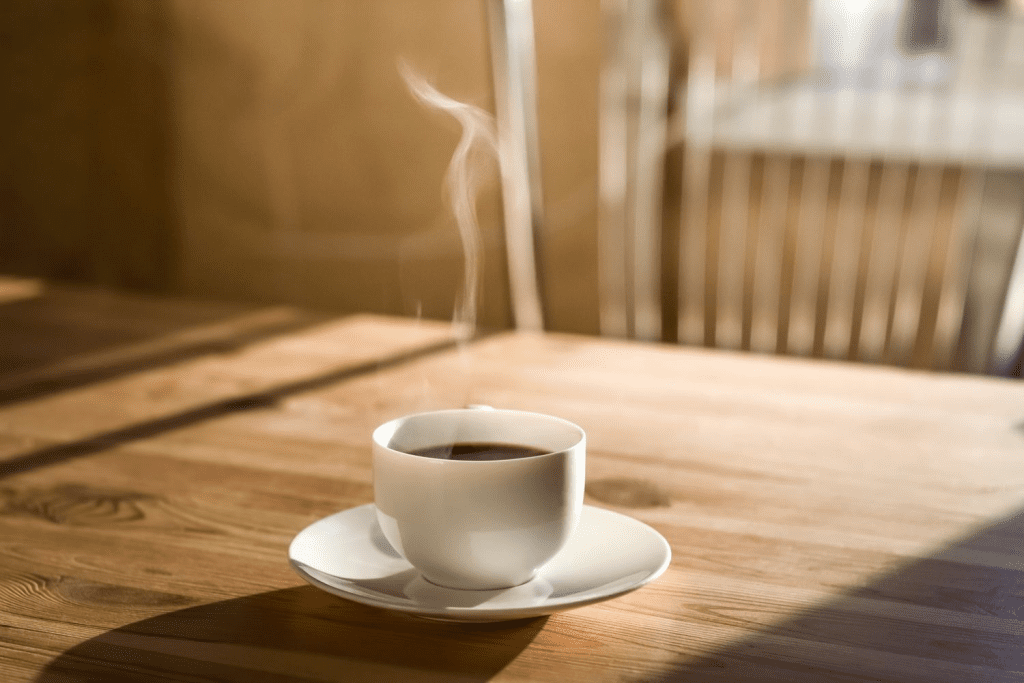Many of us rely on coffee to kickstart our mornings or power through a mid-afternoon slump. But did you know that the timing of your coffee can make a significant difference in its effectiveness? Health experts suggest there’s an ideal window for coffee consumption that aligns with our body’s natural rhythms, allowing us to reap the full benefits without disrupting our day. In this article, we’ll dive into the science behind coffee timing, explore its health benefits, and offer tips on how to make the most out of every cup.
The Health Benefits of Coffee: More Than Just a Caffeine Boost

Coffee isn’t just a tasty beverage; it’s packed with antioxidants and has a wealth of health benefits when consumed in moderation. Research has shown that coffee can:
- Enhance cognitive function: Caffeine stimulates the central nervous system, improving alertness, focus, and memory.
- Boost physical performance: By increasing adrenaline levels, coffee can help break down body fat, providing an energy source during workouts.
- Reduce the risk of chronic diseases: Studies suggest that regular coffee consumption may lower the risk of conditions like Type 2 diabetes, Parkinson’s disease, and certain cancers.
- Improve mood and mental health: Coffee can enhance mood and may reduce the risk of depression due to its stimulating effect on neurotransmitters like dopamine and serotonin.
However, to maximize these benefits, it’s essential to understand when and how to drink coffee.
When is the Best Time to Drink Coffee? Understanding Your Circadian Rhythm
To make the most of your coffee, it’s crucial to consider your body’s natural cycles, particularly the circadian rhythm. This internal clock regulates various biological processes, including the production of cortisol, known as the “stress hormone.” Cortisol levels naturally peak in the morning, around 8:00 to 9:00 AM, as your body prepares to wake up and start the day.
Drinking coffee when cortisol is at its highest can reduce its impact, as the body is already alert. Therefore, health experts recommend waiting until mid-morning, around 9:30 to 11:30 AM, when cortisol levels start to dip. This timing allows coffee to complement your body’s rhythm, providing a more effective energy boost.
The Science of Coffee Timing: Cortisol Peaks and Energy Dips
Cortisol doesn’t just peak in the morning; it has several natural peaks and dips throughout the day. These typically occur around:
- 8:00 to 9:00 AM: First peak, as you wake up.
- 12:00 to 1:00 PM: Midday peak, just before lunch.
- 5:30 to 6:30 PM: Evening peak, as your body prepares to wind down.
Since coffee can interfere with these natural cortisol cycles, drinking it during mid-morning and early afternoon, when cortisol dips, can provide a more efficient boost in alertness. If you enjoy an afternoon coffee, the ideal time would be between 1:00 PM and 3:00 PM, giving you a lift when your energy naturally lags, without overstimulating you later in the day.
Morning Coffee: The Pros and Cons of Starting Your Day with a Cup
For many, nothing beats the allure of a steaming cup of coffee first thing in the morning. Here’s a look at the pros and cons of morning coffee:

Pros:
- Increased alertness: Coffee can shake off morning grogginess and improve focus.
- Morning ritual: Many people find comfort in the routine of morning coffee, which can positively impact their mood.
Cons:
- Reduced caffeine effectiveness: Drinking coffee immediately upon waking may be less effective due to elevated cortisol.
- Potential jitters: For those sensitive to caffeine, an early coffee can sometimes lead to anxiety or jitters.
To maximize your morning coffee, consider waiting an hour after waking up. This allows cortisol levels to dip slightly, making the caffeine more effective and reducing the risk of caffeine-related jitters.
Afternoon Coffee: Combatting the Slump Safely
The afternoon slump is real, and a cup of coffee can be just what you need to power through the rest of the day. According to health experts, an afternoon coffee between 1:00 PM and 3:00 PM can help you stay alert and focused during the post-lunch lull. However, timing is key to avoiding potential downsides:

- Enhances afternoon productivity: Coffee in the early afternoon can help you regain focus for tasks that require mental clarity.
- Be mindful of sleep: Caffeine can linger in your system for several hours. Drinking coffee too late in the day can interfere with sleep quality, so avoid it after 3:00 PM if you’re sensitive to caffeine.
Avoiding Evening and Late-Night Coffee
While an evening cup of coffee might sound relaxing, it can have unintended consequences for your sleep. Caffeine typically has a half-life of about 5 to 6 hours, meaning half of it remains in your system hours after consumption. Drinking coffee in the evening can:
- Disrupt sleep: Caffeine blocks adenosine, a chemical that promotes sleep, making it harder to fall asleep and stay asleep.
- Increase anxiety: Late-night caffeine intake can lead to restlessness, increased heart rate, and difficulty winding down.
If you crave a warm drink before bed, consider herbal teas or caffeine-free options that won’t interfere with your sleep cycle.
Tips for Getting the Most Out of Your Coffee Habit

To enjoy coffee’s benefits while minimizing its downsides, keep these tips in mind:
- Time it right: Mid-morning and early afternoon are generally the best times to drink coffee. This aligns with natural cortisol dips and prevents late-day overstimulation.
- Keep it moderate: Stick to moderate coffee consumption, generally no more than 3 to 4 cups per day, to avoid caffeine dependency and side effects like jitters or anxiety.
- Pair coffee with food: Drinking coffee with or after a balanced meal can help stabilize blood sugar levels and prevent caffeine spikes.
- Choose quality over quantity: Opt for high-quality, organic coffee to reduce exposure to pesticides and ensure a better taste experience.
- Stay hydrated: Coffee can have a mild diuretic effect, so balance it with plenty of water throughout the day.
Conclusion: The Perfect Coffee Routine for Maximum Benefits
To fully enjoy coffee’s health benefits, timing is everything. Health experts recommend drinking coffee during mid-morning or early afternoon when cortisol levels dip, allowing caffeine to boost your alertness without clashing with your body’s natural rhythm. Avoid drinking coffee too early in the morning or too late in the evening to prevent cortisol interference and sleep disruptions. By aligning your coffee consumption with your biological rhythms and keeping your intake moderate, you can maximize coffee’s benefits, savoring every cup while staying alert, focused, and energized.


